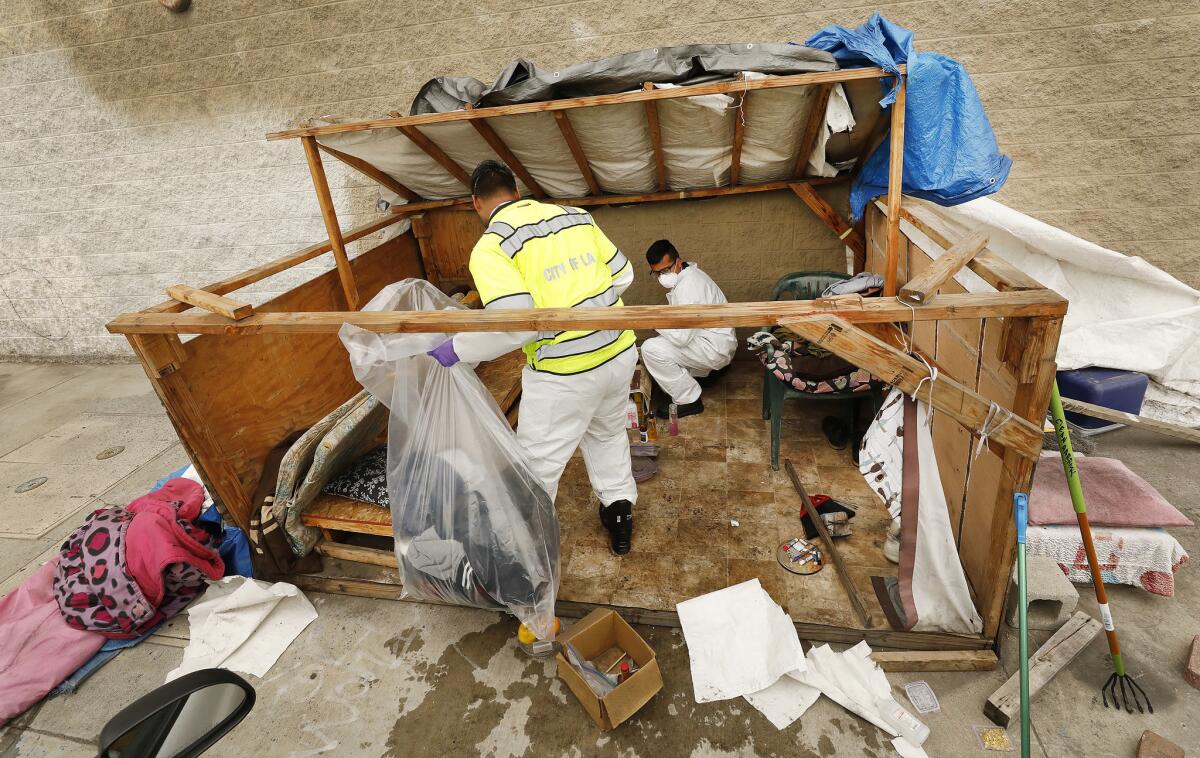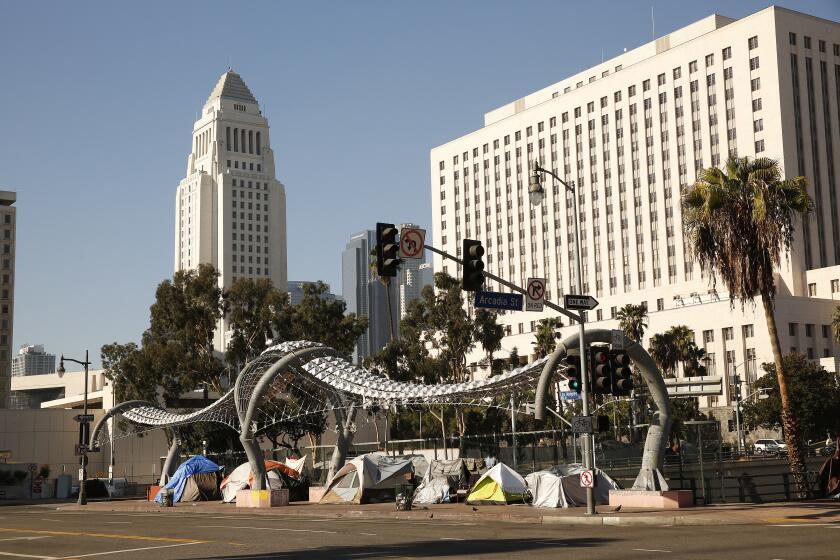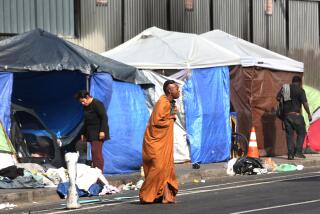Attorneys decry ‘cleanups’ of homeless encampments during pandemic

As the COVID-19 pandemic ravaged communities, public health experts worried about the deadly consequences for homeless people sleeping on the streets.
It’s a group rife with other health problems that could make it especially susceptible to the easily transmissible coronavirus. In the spring, the Centers for Disease Control and Prevention cautioned against disruptions such as clearing encampments, which could increase the potential for spreading the disease.
On Monday, a coalition of lawyers and advocates for homeless people complained that the city of Los Angeles was ignoring that advice by cleaning camps, putting people in encampments throughout the city at heightened risk.
“There is simply no public health justification for continuing the displacement of unhoused residents at this time,” write Catherine Sweetser of Schonbrun Seplow Harris Hoffman & Zeldes LLP, along with Pui-Yee Yu and Shayla Myers of the Legal Aid Foundation of Los Angeles, in a letter obtained by The Times.
The city had initially told the Department of Sanitation to halt its cleanups, which temporarily displace homeless people while city workers clean sidewalks.
In recent months, though, the cleanups have returned in certain parts of the city — particularly in specially delineated zones around homeless shelters. During the cleanups, homeless people must take down their tents and move their belongings as cleaning crews power wash the sidewalks and remove trash. Homeless people often lose important possessions as a result of these cleanups.
The coalition of activists and lawyers castigated Mayor Eric Garcetti and other city officials for allowing the cleanups to return as infection rates soar.
Lawyers and activists for homeless people are decrying the continued clean ups by the city of Los Angeles near shelters.
Sweetser, Yu and Myers cite Los Angeles Department of Public Health data showing that there are coronavirus cases among staff or residents of 15 city shelters that are part of Garcetti’s A Bridge Home program. The interim shelters were a centerpiece of the mayor’s plan to decrease homelessness, but have not lived up to their promise of funneling people into permanent housing.
Before the pandemic, elected officials had said the cleanups near shelters would help convince skeptical homeless people of the need for shelters. The City Council voted in July to resume them and permitted cleanups at other locations in December.
The lawyers’ letter pointed to a cleanup on Figueroa Street last week, when more than 15 city employees and contractors were present and about 10 people were forced to move for at least four hours. A short time later, they said, the Department of Public Health announced a new outbreak at A Bridge Home shelter in Wilmington, where people from disrupted camps had been told to go.
In a sworn declaration sent with the letter, Dr. John Swartzberg, a clinical professor emeritus at UC Berkeley’s School of Public Health, said public officials shouldn’t make a distinction between temporary or permanent displacements of homeless people.
Los Angeles Mayor Eric Garcetti trumpeted his homeless program, A Bridge Home, as a means to shore up the supply of interim housing. Results have been mixed.
“By displacing individuals from their specific encampments, even for a short amount of time, people may congregate together on the edges of the encampment site, which could result in the spread of the virus,” Swartzberg wrote.
In general, the rate of COVID-19 in the homeless community hasn’t dramatically diverged from L.A. County as a whole. There have been 3,068 confirmed cases among the homeless population through Dec. 17.
Responding to the letter, Elena Stern, a spokeswoman for the Department of Sanitation, said the cleanings were being done only near A Bridge Home shelters and “at three specific locations” in City Council District 15, which stretches from Watts to San Pedro.
Garcetti spokesman Alex Comisar said that keeping the streets clean while doing outreach and offering services “is a matter of public health.”
“That’s why the City’s efforts have been accompanied by mobile hygiene facilities, free testing and other measures,” Comisar said. “We are working with the City Council to conduct these efforts safely and in a limited capacity.”
Branimir Kvartuc, a spokesman for 15th District Councilman Joe Buscaino, said that while the CDC’s guidance made sense on paper, many homeless people are violating virus safety guidelines, much as other people are doing.
“People are disregarding the rules, and now we’re being blamed for disrupting homeless people,” Kvartuc said. However, he added: “The reality is that there are far bigger problems in encampments than the virus.”
More to Read
Sign up for Essential California
The most important California stories and recommendations in your inbox every morning.
You may occasionally receive promotional content from the Los Angeles Times.








